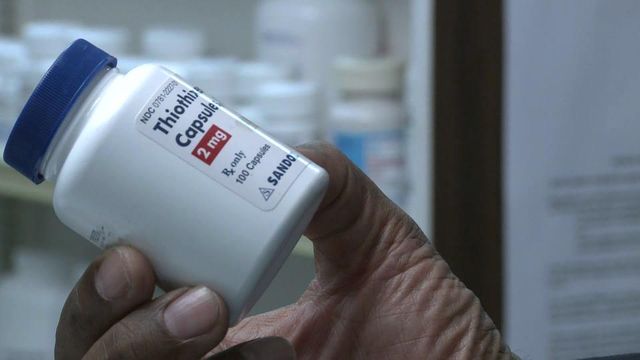Shortages could hit more than 500 drugs
Drug shortages potentially affecting more than 500 medications in the United States this year have left some patients without access to life-saving medicine.
Posted — UpdatedThe U.S. saw a record high 180 drug shortages in the first half of 2010. More than 360 drugs could experience shortages in the rest of the year.
Delmas Williams, 83, of Garner, first learned of the drug shortages when he went to refill his prescription for Mytomycin. The drug has kept his bladder cancer until control for six years, but was on back order at the Person Street pharmacy.
"Now we don't know. We're waiting to see when it will come in or if we can get it," Williams said.
Person Street pharmacist Mike James said he's seen many surprised and nervous patients like Williams. "They've been like, 'What do you mean I can't get my medicine?'" he said.
Patients then have to consider changes that could disrupt their care, James said.
"Now then, you've got to fall back to something else. And does the patient get as good results with that?" he said.
New regulations from the Food and Drug Administration are partly to blame, James said.
Many older drugs weren't subject to FDA testing for safety and effectiveness until a new crackdown. Some manufacturers chose not to invest in the costs of satisfying FDA regulations and to leave it to generic drug makers to meet the demand, often at higher costs to consumers.
"I think they've got to go back, and I think the FDA has got to make a decision on how expediently people need to be able to get their medication," James said.
The shortages have also hit medications regularly used for sedation in hospitals, forcing doctors to postpone planned procedures.
Pharmacists recommend that when a doctor prescribes a drug, patients ask if the doctor knows if the drug is available and, if not, what alternative drugs might work.
Williams' wife Bessie said she can't understand why her husband can't get the medication that might extend his life.
"I'm startled that in our country, we're not really paying more attention to the lives of our people. Why can't we get the medicine?" Bessie Williams said.
• Credits
Copyright 2024 by Capitol Broadcasting Company. All rights reserved. This material may not be published, broadcast, rewritten or redistributed.





